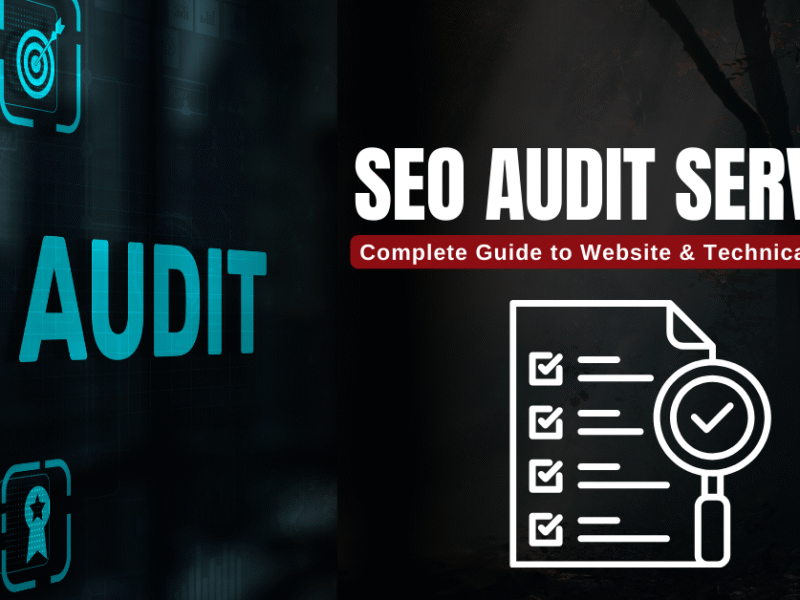Ever wondered why your website isn’t ranking despite having amazing content? The answer might lie beneath the surface — in the technical aspects of your website. A technical SEO audit service helps you identify and fix backend issues that impact your website’s visibility and performance in search engines.
Think of it as a health checkup for your website — ensuring everything runs smoothly, efficiently, and search-engine friendly.
What is a Technical SEO Audit?
A technical SEO audit is a detailed evaluation of your website’s infrastructure to ensure that search engines can easily crawl, index, and display your site. It focuses on non-content factors like website speed, mobile responsiveness, structured data, and crawlability.
In short, it’s all about making sure your site meets the technical standards required by Google and other search engines to rank higher.
Why Technical SEO Matters for Your Website
No matter how good your content is, it won’t reach your audience if search engines can’t properly access it. That’s where technical SEO comes in.
A well-optimized website ensures:
- Faster load times
- Better crawlability
- Fewer errors
- Improved rankings
- Enhanced user experience
If you skip technical SEO, you’re essentially building your online presence on shaky ground.

Difference Between Technical SEO and On-Page SEO
While on-page SEO deals with optimizing content and keywords, technical SEO focuses on the infrastructure that supports that content.
Think of it this way:
- On-page SEO = What users see (content)
- Technical SEO = What search engines see (code and structure)
Both work hand in hand for successful SEO results.
Core Components of a Technical SEO Audit
Website Crawling and Indexing
Search engines use bots to crawl your website. A technical audit checks if your pages are being properly crawled and indexed. It identifies blocked pages, crawl errors, and unnecessary redirects.
Site Architecture and URL Structure
A clean, logical site structure makes it easier for both users and bots to navigate. The audit ensures your URLs are SEO-friendly, hierarchical, and consistent.
Mobile Optimization
With Google’s mobile-first indexing, mobile optimization is non-negotiable. The audit assesses how your website performs on mobile devices, including responsiveness and usability.
Website Speed and Performance
Speed is crucial. Slow websites not only frustrate users but also hurt rankings. Tools like PageSpeed Insights reveal how to optimize images, caching, and scripts for faster performance.
HTTPS and Website Security
If your site isn’t secure, it’s a red flag for both users and search engines. HTTPS ensures data protection, builds trust, and boosts rankings.
XML Sitemaps and Robots.txt
These files guide search engines through your website. An SEO audit ensures they’re correctly set up, updated, and error-free.
Canonicalization and Duplicate Content
Duplicate pages confuse search engines. Canonical tags tell Google which version of a page should be indexed.
Structured Data and Schema Markup
Schema markup helps search engines understand your content better — like reviews, products, or FAQs. It’s key for rich snippets in search results.
Technical SEO Tools You Should Use
Google Search Console
Free and powerful, it helps you track performance, fix indexing errors, and monitor search visibility.
Screaming Frog
A crawler tool that scans your website to detect technical issues like broken links, missing tags, and redirects.
Ahrefs and SEMrush
These tools provide comprehensive insights into crawl errors, site health, and backlinks.
GTmetrix and PageSpeed Insights
Used to measure load time and page performance, offering actionable recommendations to improve speed.
Common Technical SEO Issues Found During Audits
- Broken internal or external links
- Missing meta tags
- Duplicate content
- Slow page speed
- Poor mobile usability
- Incorrect use of canonical tags
- Orphan pages (not linked anywhere)
- Large unoptimized images
Identifying these issues early prevents ranking drops and traffic loss.
How a Professional Technical SEO Audit Service Works
Step 1: Initial Website Assessment
The process starts with understanding your site’s structure, traffic trends, and goals.
Step 2: In-depth Technical Analysis
Using advanced tools, experts crawl your site to uncover every hidden issue — from broken scripts to indexation errors.
Step 3: Reporting and Recommendations
You receive a detailed report highlighting the issues, their impact, and actionable fixes.
Step 4: Implementation and Monitoring
The service team helps implement the recommendations and continuously monitors progress to ensure results.
Benefits of Hiring a Technical SEO Audit Service
- Saves time and resources
- Identifies issues you may miss
- Boosts website speed and ranking
- Improves user experience
- Ensures long-term SEO stability
It’s like having a mechanic tune your website’s engine for peak performance.
How Often Should You Do a Technical SEO Audit?
Ideally, every 6 to 12 months. However, if you recently redesigned your website or noticed ranking fluctuations, a technical audit should be your next move.
DIY vs Professional SEO Audit – What’s Better?
You can do it yourself with free tools, but professional services bring deeper insights and advanced tools. For medium to large websites, hiring experts is the smarter investment.
How to Choose the Best Technical SEO Audit Service
Look for these key traits:
- Proven experience and case studies
- Transparent reporting
- Up-to-date with Google’s algorithms
- Affordable but not “cheap”
- Offers implementation support
A good SEO service doesn’t just identify problems — it helps solve them.
Estimated Cost of Technical SEO Audit Services
Costs vary by website size and complexity.
- Small websites: $300 – $700
- Medium websites: $800 – $1,500
- Large enterprise sites: $2,000+
While it’s an investment, the return in organic traffic and rankings is well worth it.
Case Study: Real Results from a Technical SEO Audit
After a full technical SEO audit, one e-commerce website saw:
- Page load speed: 5.6s → 1.8s
- Crawl errors: Reduced by 92%
- Organic traffic: +47% in 3 months
That’s the power of fixing what’s under the hood.
Conclusion
A technical SEO audit service is essential for keeping your website search-friendly, fast, and fully optimized. Without a solid technical foundation, even the best content won’t perform. If you’re serious about improving rankings and visibility, invest in a professional audit — it’s the smartest move you can make for long-term success.
FAQs
1. What is included in a technical SEO audit?
It includes checking crawlability, indexing, site speed, mobile optimization, and structured data.
2. How long does a technical SEO audit take?
Typically, it takes between 1 to 3 weeks depending on the website size and complexity.
3. Is a technical SEO audit necessary for small businesses?
Yes! Even small websites need a strong technical foundation to rank and attract traffic.
4. How do I know if my website has technical SEO issues?
You might notice ranking drops, slow load times, or errors in Google Search Console.
5. Can I perform a technical SEO audit myself?
Yes, using free tools, but hiring professionals ensures accuracy and faster results.





